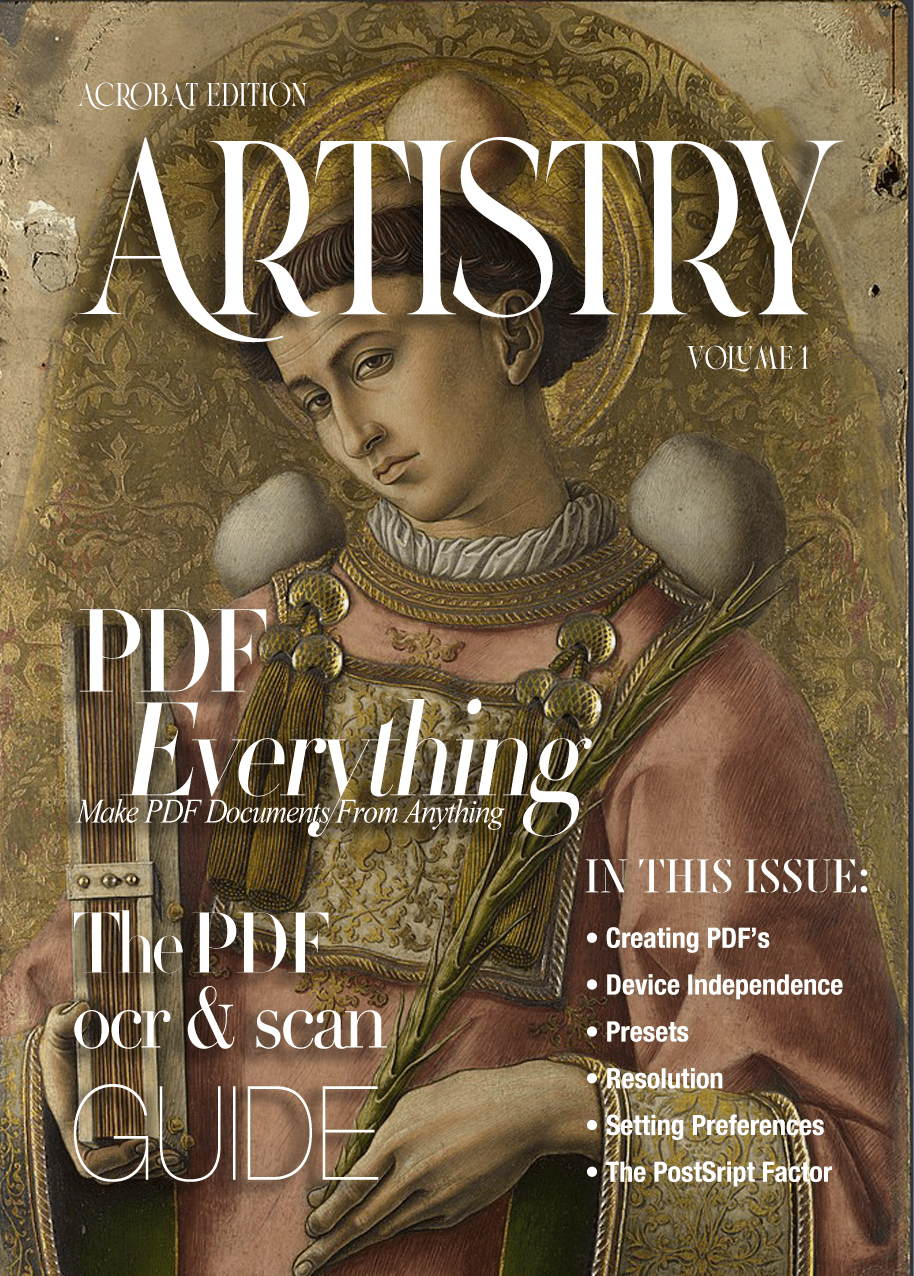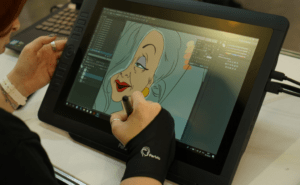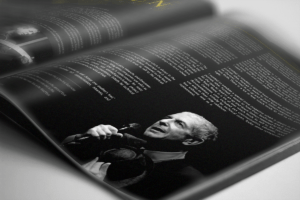Artistry Library
The Education Station
Master Your Tools…
Release Your Talent
The Education Station
The Artistry Method of Design Training
This is not your typical training site. You're going to learn the old fashioned way…by studying. My focus isn't design. This is "Shop Class". You're going to learn how to use your tools. You'll learn what they do, how they work, and why you need them. Each book is organized into bite-sized pieces. Every book is devoted to a specific set of tools or concept. You're a better artist when you know why you're doing what you're doing, and exactly what every tool will do before you ever touch it. You should know what to expect before you see it. That's what the Artistry method of training is all about.

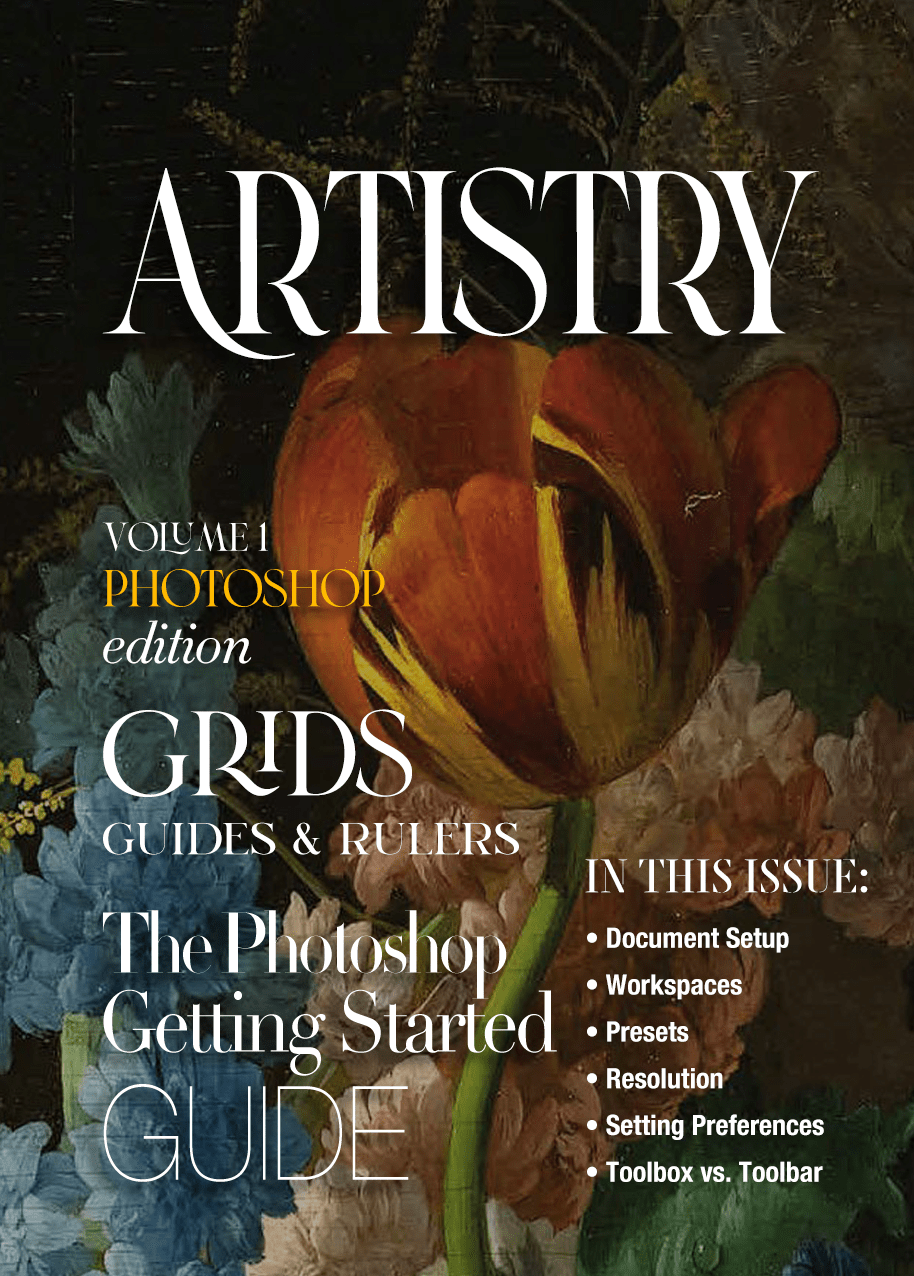
The Photoshop Bookshelf
Artistry for Photoshop is my entire class condensed into books. Photoshop is an incredibly feature-rich application, and it can be a little daunting to approach…especially if you’re new. The first volume starts you off with the fundamentals; setting up new documents, setting preferences, and understanding the basics of the Photoshop user interface. After that, we will cover your tools as they relate to important tasks and concepts like color science, luminance, typography, masking, and so on. You will learn to “think” Photoshop so you can make sense out of what everything does, and what you should expect to be able to do with a particular set of tools.
You won’t just learn how your tools work. You’ll learn how they work together. The goal is to remove all the guess work from Photoshop, so that every time you work with it, the only thing you’re focused on is your project. No more trial and error, or fear of using tools you don’t understand. You will know exactly what tool to use and what it’s going to do before you ever touch it. When you’re that comfortable with Photoshop, your will see your art and photography reach new levels of excellence.
The Illustrator Bookshelf
Illustrator is all about illustration, as its name implies. Where Photoshop allows you to paint on a simulated canvas, Illustrator allows you to draw on the computer like you would on paper…even if you have no natural talent with your hands. What you could never do with pencil and paper will become second nature with Illustrator, which was the very first Adobe product. It’s older than Photoshop. There are those who would tell you that knowing Photoshop means you don’t really need Illustrator, especially if you are proficient with Photoshop’s Pen Tool. But that’s like thinking that because you have nails, you don’t need a hammer.
While it’s true that you could use a shoe to hammer a nail, a hammer would work much better. You don’t have to adapt it to your needs. It was created specifically for hammering nails. That’s the reason these apps are part of a suite of products. They’re designed to work together to perform specific design tasks. Illustrator does many of things that Photoshop can’t do, or it can’t do well. All Adobe tools work that way. Illustrator’s strength is in allowing the artist to break an illustrator into smaller pieces that fit together to make diagrams, cartoons, sketches, and of course…illustrations.
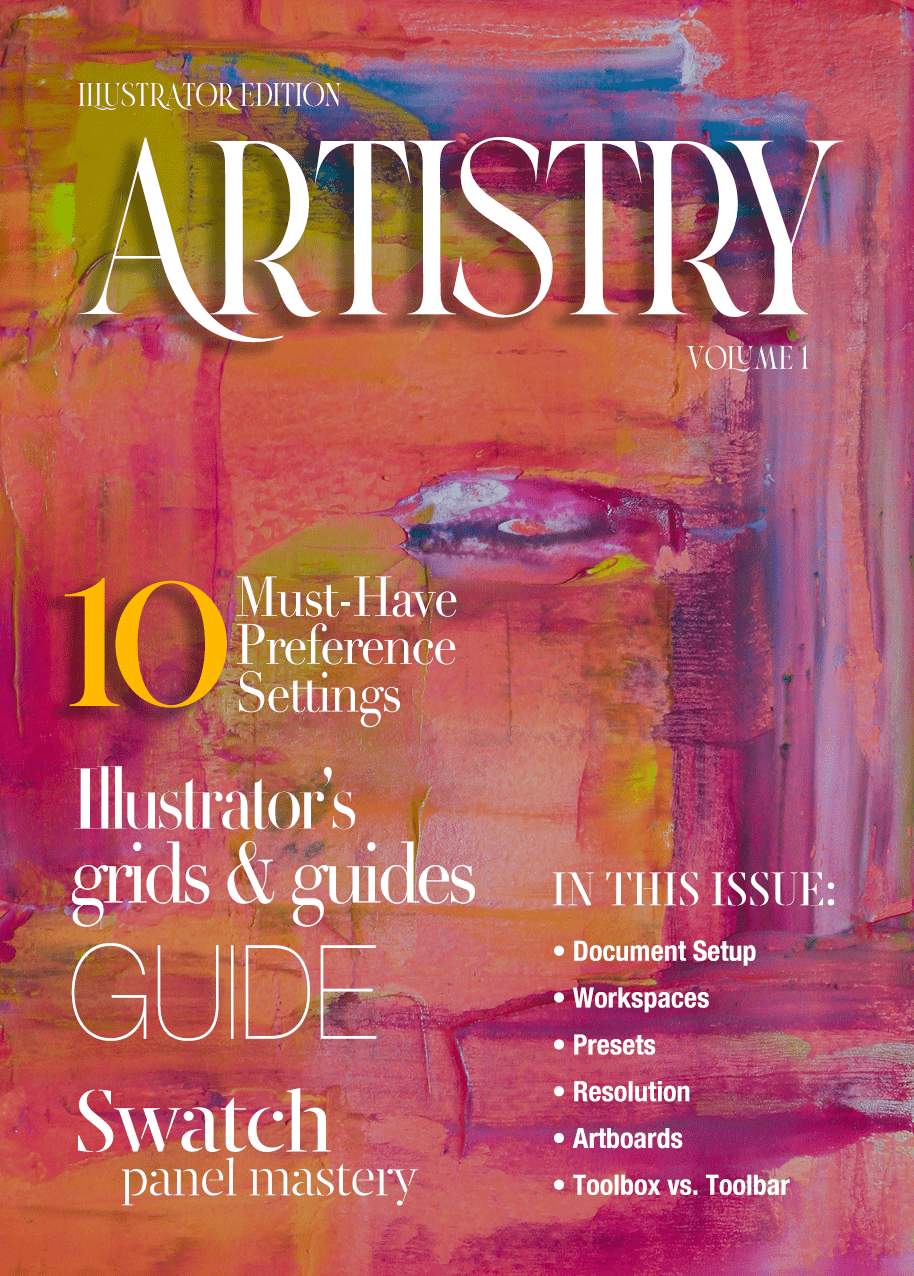
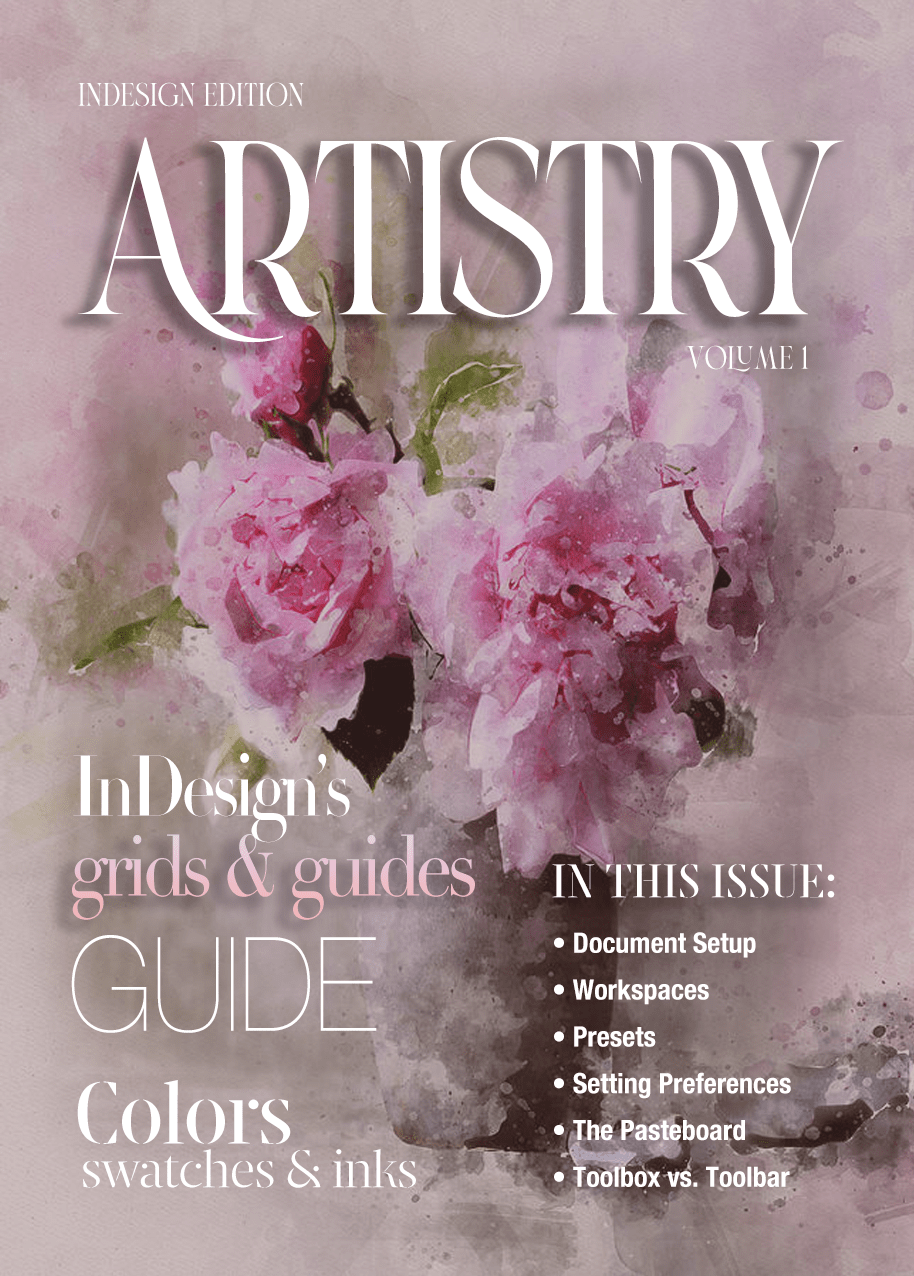
The InDesign Bookshelf
Where Photoshop allows you to work with photography, and Illustrator gives you the tools to create illustrations, InDesign is all about document publishing. Your documents can be as simple as a brochure, or as complex as an encyclopedia. Best of all, it allows a team of people to work collaboratively using a word processor like Microsoft Word. That way the team can do all the writing and editing, and when they’re finished, the designer can take the final Word and Excel documents and bring them into InDesign for layout and professional printing.
Printing isn’t about just paper anymore. It includes creating PDF files you can send electronically via email to text message, or creating professional-looking documents that can be part of a website. You will see many of the same tools in InDesign that you’ll learn about in Photoshop and Illustrator. And they work the same way in InDesign, so you only have to learn a tool once to know how it works in every app. But InDesign’s specialty is in allowing you to organize large amounts of text into magazines, novels, eBooks, annual reports, proposals, and long, multi-volume documents like encyclopedia. You can footnote, caption, and cross-reference with other documents. And it can make those documents interactive with buttons and hotspots so that they function on the web.
The Acrobat Bookshelf
Acrobat is a very misunderstood program because these days, people can make PDF files of pretty much anything. But Acrobat does so much more than generate PDF files. It can create presentations. It makes interactive forms. It can create documents that require a password to open or edit. You can make documents non-printable. It can turn off the ability to copy and paste. It can scan paper documents and convert them to text documents. It can generate links out of an InDesign table of contents, index or glossary, basically making print documents work like software. The PDF was a revolutionary development in graphic design. Before PDF’s, you couldn’t share documents with anybody anywhere, unless they had a copy of the program you used to design them.
Sharing an InDesign document meant the recipient had to have a Mac with InDesign…which really sucked if they only had Word for PC. That happened a lot because in their infancy, all Adobe products were Mac only. But even if you had the software, if you didn’t have the fonts used to create it, the document had to substitute the missing fonts with whatever system fonts it found on your computer, so it looked awful. Imagine designing a beautiful bid or proposal, only to have it fall apart when you sent it to a prospective client, asking them to give you a million dollar job. The PDF changed that by making documents font, platform, and software independent, so documents looked perfect on any platform. Best of all, Acrobat comes with a sister program called “Distiller” that allows you to convert hundreds or even thousands of documents into perfect PDF’s in a matter of minutes.
